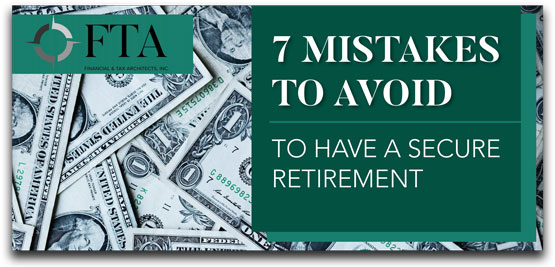Do You Pay Income Taxes in Retirement?

3 MIN. READ
As you get closer to retirement, one question that may cross your mind is whether you still have to pay income taxes? This is a key question for retirees since typically they no longer earn a steady income. However, taxes are almost inevitable. So, with the proper planning, you can lower or potentially eliminate your income tax burden during retirement.
Taxes are certain
While retirement ends steady earnings and the daily commute to the office and never-ending Zoom meetings, one thing that remains unchanged is income taxes.
Therefore, to plan properly, it’s important to understand what taxes you must pay when you are retired and what portion of your income is taxable. The following are some basics considerations:
- Some withdrawals from an annuity are taxable. An annuity is tax-deferred, which means you don’t pay income taxes until you begin withdrawing money. The IRS taxes withdrawals depending on whether you have a qualified or non-qualified annuity. Withdrawals from a qualified annuity are taxable. When you make a withdrawal from a non-qualified annuity only the earnings are taxable.
- Funds from a tax-deferred investment are taxable. 401(k)’s and IRA’s are tax-deferred investments. Contributions to a tax-deferred account are not-taxed while the opposite is true when it’s time to withdraw your money. When you start withdrawing from a traditional IRA, the taxable amount is based on earnings. Any money you from your 401(k) is taxable.
- Social Security benefits can be taxable. Retirees do not have a steady paycheck coming in, which means there are no federal tax, Social Security, or Medicare to pay. However, believe it or not, your Social Security benefits can be taxed. The taxable amount depends on any other retirement income you receive. According to the Social Security Administration (SSA), the IRS can tax up to 85% of your Social Security benefits.
How to lower your tax bill in retirement
Taxes in retirement could make up a large portion of your expenses, which is one reason to make sure you plan well. Although the part of your income that’s taxable varies, there are several tools you should be aware of that can help decrease or eliminate your taxes in retirement.
As you begin your financial planning, consider some of the following strategies:
- Contribute to a Roth IRA. Think about opening a Roth IRA or, convert a traditional IRA to a Roth IRA. With a Roth IRA, you are not taxed on earnings or distributions in retirement. You must follow certain rules, for example, you must keep the account open for a minimum of five years.
- Set up a health savings account. Contributions to a health savings account (HSA) account are tax-deductible, and the earnings and withdrawals you make for qualified medical expenses are tax-free. Therefore, an HSA serves two important purposes in retirement: reducing or eliminating taxes and providing an extra income source to cover healthcare costs. For 2022, the maximum contribution individuals can make is $3,650. For families, the maximum is $7,300. Also, those aged 55 and older may qualify for an annual $1,000 catch-up contribution.
- Take advantage of untaxable income sources. For example, the proceeds you gain from selling your primary home are not taxable. The non-taxable proceeds from a home sale vary depending on whether you are single or married. You can also give some of your assets to family members to lower or avoid estate taxes.
Plan your retirement properly
Whether you’ve already started planning for retirement or are just about to start, it’s never too early or too late to talk to a financial advisor. A financial advisor will help you create a retirement plan that’s best suited for you and can provide guidance by adjusting your current investments.
Whether you start early or late, you’ll find that discussing your financial situation with an experienced financial advisor is beneficial in planning for retirement properly. This is especially true with so many investment and retirement options, each with its own unique and often overwhelming tax rules. Contacting a qualified financial advisor will certainly help you figure out if you’re on the right track or if there are other better options available for you.






